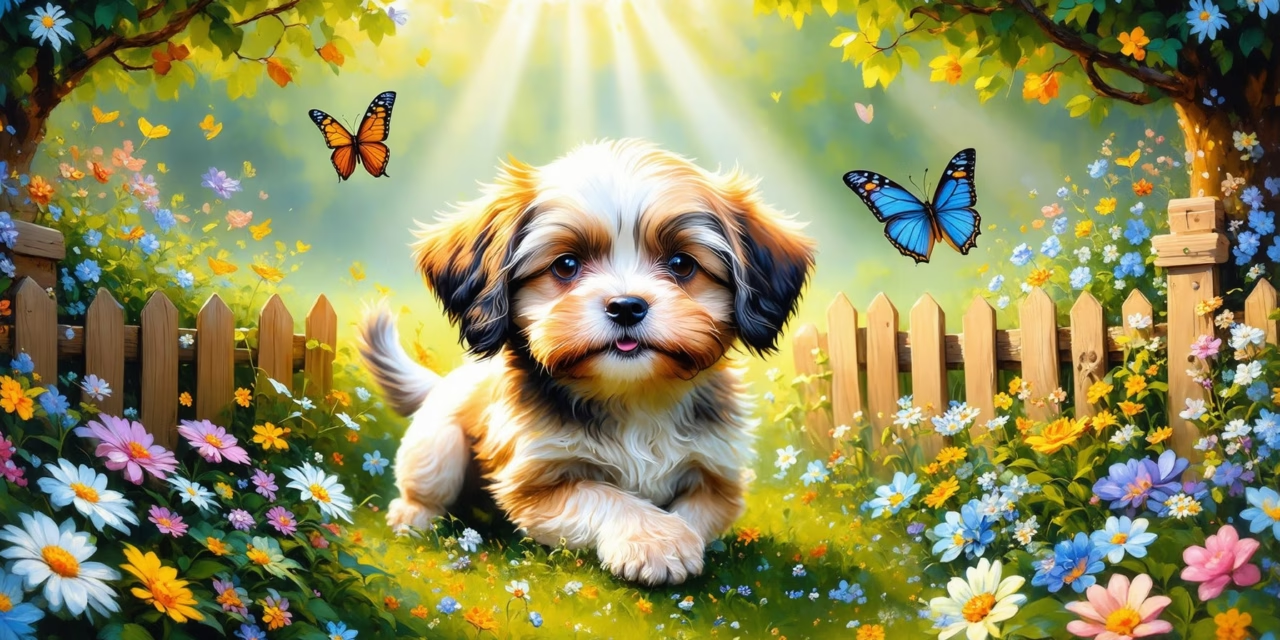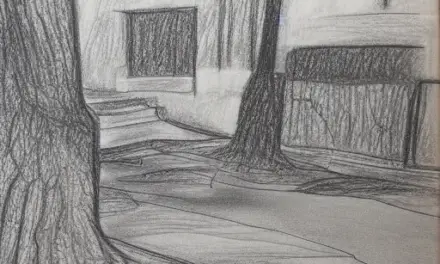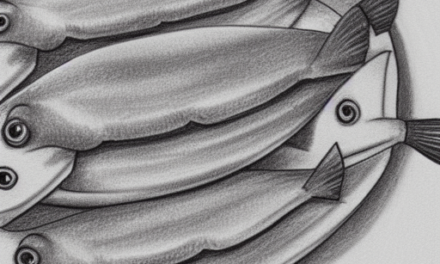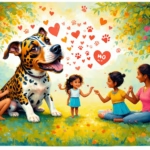Key Takeaways
- Cavachon puppies are affectionate and friendly, making them excellent companions for families and individuals.
- With a small size of 10 to 20 pounds, Cavachons are adaptable to various living situations, including apartments.
- Regular grooming is essential due to their low-shedding coats, helping prevent matting and skin issues.
- Cavachons require regular exercise and mental stimulation to stay healthy and happy, preventing boredom-related behaviors.
- Potential health concerns include heart problems and hip dysplasia; regular veterinary check-ups are crucial for their well-being.
- Early training and socialization are vital for Cavachons to develop into well-adjusted pets, with positive reinforcement techniques being most effective.
Are you considering welcoming a cavachon puppy into your home? This delightful hybrid breed, a charming mix of the Cavalier King Charles Spaniel and the Bichon Frise, is known for its affectionate nature and playful spirit. In this article, we will explore everything you need to know about cavachon puppies, including their size, training needs, and barking habits. We’ll also compare the cavachon with its close relative, the Cavapoo, to help you determine which breed might be the best fit for your lifestyle. Additionally, we will discuss the potential downsides of owning a cavachon, including health considerations and training challenges. Whether you’re looking to find cavachon puppies for sale or simply want to learn more about this adorable breed, our comprehensive guide will provide valuable insights to ensure you make an informed decision. Join us as we dive into the wonderful world of cavachon puppies!
Overview of the Cavachon Dog Breed
Cavachons are a hybrid breed, resulting from the cross between a Cavalier King Charles Spaniel and a Bichon Frise. This combination typically yields a dog that is not only good-natured and gentle but also highly sociable and affectionate. Here are some key points to consider when evaluating whether a Cavachon is a good dog for you:
Cavachon Dog Breed Overview: Is a Cavachon a Good Dog?
Cavachons can be excellent companions due to their loving nature, adaptability, and sociability. They thrive on human interaction and can fit well into various lifestyles. Here are some essential characteristics of the Cavachon:
- Temperament: Cavachons are known for their friendly disposition, making them excellent companions for families and individuals alike. They generally get along well with children and other pets, which is a significant advantage for multi-pet households (American Kennel Club).
- Size and Adaptability: These dogs are small, usually weighing between 10 to 20 pounds, which makes them suitable for various living situations, including apartments. Their adaptability to different environments is a plus for urban dwellers (PetMD).
- Exercise Needs: While Cavachons enjoy playtime and short walks, they do not require excessive exercise, making them ideal for less active owners. Regular playtime and mental stimulation are essential to keep them happy and healthy (The Spruce Pets).
- Grooming Requirements: Their curly, low-shedding coat requires regular grooming to prevent matting. A consistent grooming routine is necessary, which can be managed by professional groomers or at home (DogTime).
- Health Considerations: Like all breeds, Cavachons can be prone to certain health issues, including heart problems and hip dysplasia. Regular veterinary check-ups and a healthy diet are crucial for their well-being (VCA Animal Hospitals).
- Training and Socialization: Early training and socialization are vital for Cavachons to develop into well-rounded pets. Positive reinforcement techniques work best with this breed, as they respond well to praise and rewards (Cesar’s Way).
If you are considering adding a Cavachon to your family, ensure you are prepared for their grooming needs and committed to their training and socialization. For more information on dog care and training, resources like the American Kennel Club and PetMD provide valuable insights.
Characteristics and Temperament of Cavachons
Cavachons are celebrated for their charming personalities and affectionate nature. Understanding their characteristics can help potential owners determine if this breed is the right fit for their lifestyle:
- Affectionate Companions: Cavachons are known for their loving demeanor, making them ideal for families and individuals seeking a loyal pet. They thrive on companionship and often form strong bonds with their owners.
- Social and Friendly: This breed is typically very sociable, enjoying the company of both humans and other animals. Their friendly nature makes them great candidates for multi-pet households.
- Intelligent and Trainable: Cavachons are intelligent dogs that respond well to training. Early socialization and positive reinforcement techniques can help them develop into well-mannered adults.
- Playful and Energetic: While they do not require excessive exercise, Cavachons enjoy playtime and short walks. Engaging them in interactive games can keep them mentally stimulated and physically active.
Overall, the Cavachon dog breed offers a delightful combination of affection, playfulness, and adaptability, making them a popular choice among dog lovers. If you are looking for Cavachon puppies for sale, ensure you consider reputable breeders or adoption options to find the perfect companion.
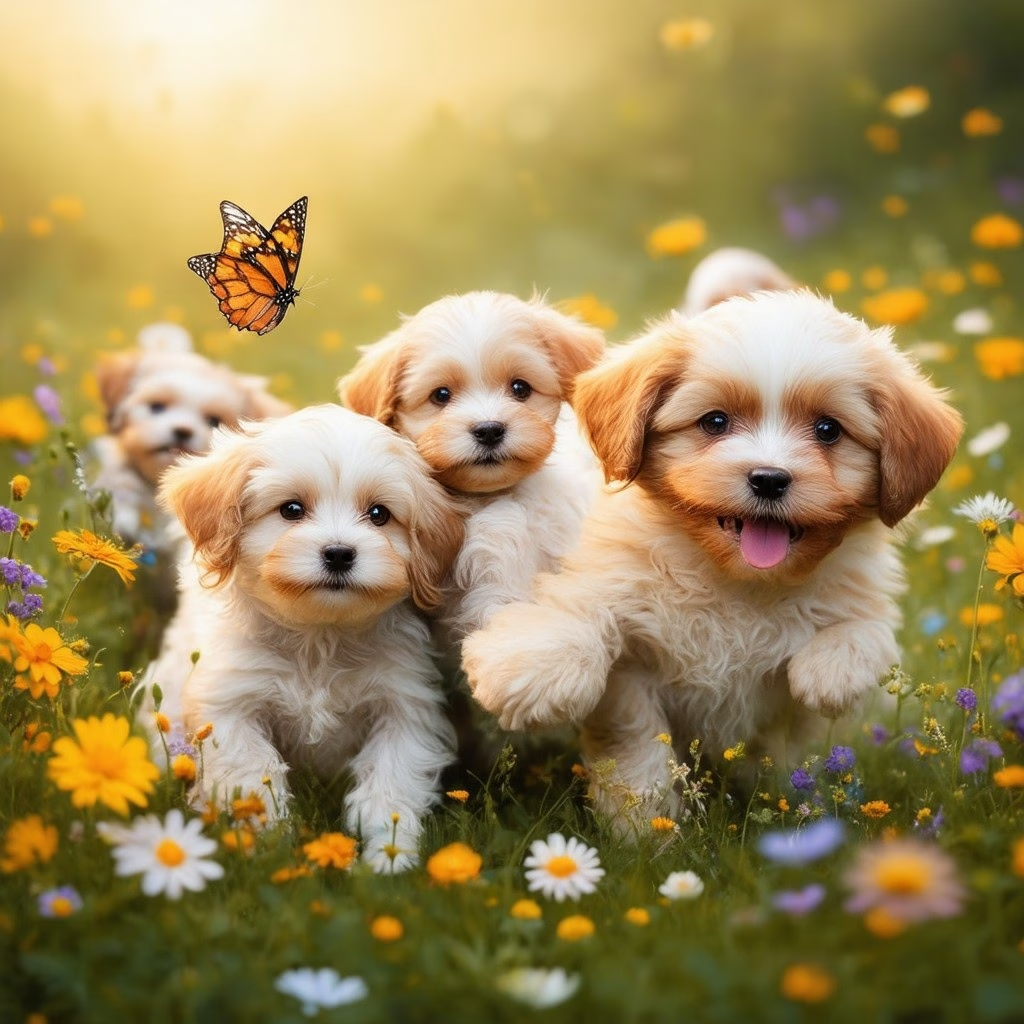
Cavachon vs. Cavapoo: Which is better, Cavachon or Cavapoo?
When comparing Cavachons and Cavapoos, it’s essential to consider various factors such as temperament, energy levels, grooming needs, and suitability for families.
Comparing the Cavachon and Cavapoo breeds
- Temperament:
- Cavapoo: Known for their friendly and affectionate nature, Cavapoos are a cross between a Cavalier King Charles Spaniel and a Poodle. They tend to be more laid-back and enjoy being close to their owners, making them excellent companions for families and individuals alike.
- Cavachon: This breed, a mix of a Cavalier King Charles Spaniel and a Bichon Frise, is typically more playful and energetic. Cavachons are known for their cheerful disposition and love for playtime, making them ideal for families with active lifestyles.
- Energy Levels:
- Cavapoo: Generally, Cavapoos have moderate energy levels. They enjoy daily walks and playtime but are also content to relax at home, making them suitable for families who prefer a more relaxed pet.
- Cavachon: Cavachons are often more energetic and require regular exercise and playtime. They thrive in environments where they can engage in activities, making them a great choice for families who enjoy outdoor adventures.
- Grooming Needs:
- Cavapoo: Their Poodle lineage means they may have a curly coat that requires regular grooming to prevent matting. Depending on the coat type, they may need professional grooming every few months.
- Cavachon: With a soft, wavy coat, Cavachons also require regular grooming. Their coat is less prone to matting than that of a Cavapoo, but they still benefit from regular brushing to keep it healthy.
- Suitability for Families:
- Cavapoo: Ideal for families looking for a calm, affectionate dog that can adapt to various living situations, including apartments.
- Cavachon: Best for families seeking an active, playful dog that enjoys engaging with children and participating in family activities.
In conclusion, the choice between a Cavachon and a Cavapoo largely depends on your family’s lifestyle and preferences. If you prefer a more relaxed companion, the Cavapoo may be the better choice. Conversely, if you desire a playful and energetic puppy, the Cavachon could be the perfect fit. For further insights into pet care and training, consider consulting reputable sources such as the American Kennel Club (AKC) or the Humane Society, which provide valuable information on dog breeds and their care.
Pros and cons of each breed
Understanding the pros and cons of Cavachons and Cavapoos can help you make an informed decision when choosing the right puppy for your family.
- Cavachon Pros:
- Playful and energetic, making them great companions for active families.
- Affectionate and friendly, often getting along well with children and other pets.
- Less prone to severe health issues compared to some purebred dogs.
- Cavachon Cons:
- May require regular grooming to maintain their coat.
- Can be prone to separation anxiety if left alone for long periods.
- Energetic nature may not suit families looking for a more laid-back pet.
- Cavapoo Pros:
- Generally calm and adaptable, suitable for various living situations.
- Affectionate and loyal, often forming strong bonds with their owners.
- Less shedding due to their Poodle lineage, which can be beneficial for allergy sufferers.
- Cavapoo Cons:
- May require more grooming depending on their coat type.
- Can be sensitive and may require gentle training methods.
- Moderate energy levels may not satisfy families looking for a highly active dog.
Ultimately, both breeds have unique qualities that can fit different lifestyles. Whether you choose a Cavachon or a Cavapoo, ensuring that you provide a loving and engaging environment will lead to a happy and healthy pet.
Cavachon Size: How big will a Cavachon get?
Cavachons, a delightful crossbreed between the Cavalier King Charles Spaniel and the Bichon Frise, typically reach a height of around 12 to 13 inches at the shoulder. In terms of weight, they generally fall within the range of 15 to 25 pounds, although individual dogs may vary slightly outside this range due to factors such as genetics and diet. These dogs are known for their charming, affectionate nature and their hypoallergenic coats, which can vary in texture from a slight wave to a more pronounced curl. The coat length is usually medium, requiring regular grooming to maintain its health and appearance.
For prospective Cavachon owners, understanding the breed’s size and grooming needs is essential for ensuring a happy and healthy pet. According to the American Kennel Club, mixed breeds like the Cavachon can inherit traits from either parent breed, which may influence their size and coat characteristics.
In summary, a Cavachon will typically grow to be about 12-13 inches tall and weigh between 15-25 pounds, making them a suitable choice for various living situations, including apartments and homes with limited space.
Factors influencing Cavachon growth
Several factors can influence the growth of a Cavachon puppy, including genetics, nutrition, and overall health. Genetics play a significant role, as the size of the parent breeds can determine the potential size of the Cavachon. Proper nutrition is also crucial; a balanced diet tailored for small breeds can support healthy growth and development. Additionally, regular veterinary check-ups can help monitor growth patterns and address any health concerns that may arise during the puppy’s development.
Understanding the growth stages of a Cavachon
As Cavachon puppies grow, they will go through several stages of development. Initially, they will experience rapid growth in their first few months, reaching about half of their adult size by six months. After this period, growth will slow down, and they will continue to fill out until they reach their full grown Cavachon size around 12 to 18 months. During these stages, it’s important to provide consistent training and socialization to ensure they develop into well-adjusted adult dogs. Regular exercise and mental stimulation are also vital to keep them healthy and happy.
Cavachon Downsides: What are the downsides of the Cavachon?
While Cavachons are beloved for their friendly demeanor and adorable appearance, potential owners should be aware of some downsides associated with this charming breed. Understanding these factors can help you make an informed decision about welcoming a Cavachon into your home.
Potential health issues in Cavachons
Cavachons, like many mixed breeds, can inherit health issues from their parent breeds, the Cavalier King Charles Spaniel and the Bichon Frise. Some common health concerns include:
– **Heart Problems**: Cavachons may be prone to heart conditions, particularly mitral valve disease, which is common in Cavalier King Charles Spaniels.
– **Eye Issues**: Conditions such as cataracts and retinal problems can affect Cavachons, leading to vision impairment.
– **Hip Dysplasia**: This genetic condition can cause discomfort and mobility issues in Cavachons, especially as they age.
– **Allergies**: Some Cavachons may develop allergies, leading to skin irritations or gastrointestinal issues.
Regular veterinary check-ups and a healthy diet can help mitigate these risks. It’s essential to choose a reputable breeder who screens for these health issues to ensure you are adopting a healthy Cavachon puppy.
Lifestyle considerations for Cavachon owners
Before bringing a Cavachon into your life, consider the lifestyle adjustments you may need to make. Here are some key points to keep in mind:
– **Exercise Needs**: Cavachons require regular exercise to stay healthy and happy. Daily walks and playtime are essential to prevent boredom and behavioral issues.
– **Grooming Requirements**: Their fluffy coats need regular grooming to prevent matting and maintain cleanliness. Be prepared for frequent brushing and occasional trips to the groomer.
– **Socialization**: Cavachons thrive on companionship and can develop separation anxiety if left alone for long periods. Ensure you can provide the attention and social interaction they need.
– **Training Commitment**: While Cavachons are generally eager to please, consistent training is necessary to instill good behavior. Consider investing time in training classes or resources to help your puppy develop into a well-mannered adult.
By understanding these potential downsides and lifestyle considerations, you can better prepare for the responsibilities of owning a Cavachon. If you’re considering adding a Cavachon to your family, explore options for Cavachon puppies for sale and adoption to find the perfect match for your home. For more information on Cavachon puppies, visit the [American Kennel Club](https://www.akc.org/dog-breeds/cavachon/) for breed-specific insights.
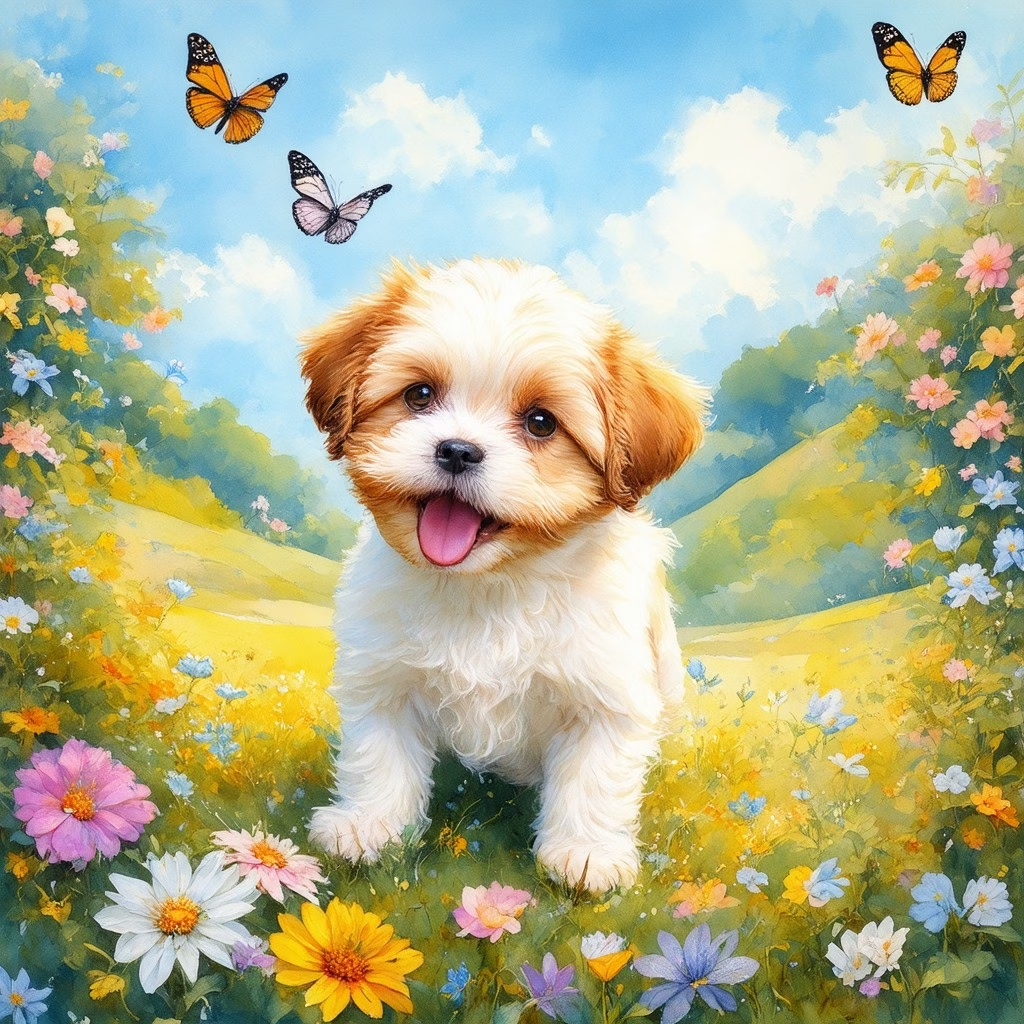
Cavachon Downsides: What are the downsides of the Cavachon?
The Cavachon, a crossbreed between a Cavalier King Charles Spaniel and a Bichon Frise, is known for its friendly demeanor and affectionate nature. However, potential owners should be aware of several downsides associated with this breed:
- Health Issues: Cavachons can inherit health problems from both parent breeds. Common concerns include hip dysplasia, patellar luxation, and heart issues such as mitral valve disease. Regular veterinary check-ups and a healthy diet are essential to mitigate these risks (American Kennel Club).
- Grooming Needs: With their wavy, curly coats, Cavachons require regular grooming to prevent matting and skin issues. This can be time-consuming and may lead to additional costs for professional grooming services (PetMD).
- Separation Anxiety: Cavachons are highly social dogs that thrive on companionship. They may experience separation anxiety if left alone for extended periods, leading to destructive behaviors. Training and gradual acclimatization to alone time can help alleviate this issue (American Society for the Prevention of Cruelty to Animals).
- Training Challenges: While generally intelligent, Cavachons can be stubborn. Consistent, positive reinforcement training methods are necessary to ensure they respond well to commands. Early socialization is also crucial to develop a well-rounded temperament (The Spruce Pets).
- Exercise Requirements: Although they are small, Cavachons need regular exercise to maintain their physical and mental health. A lack of activity can lead to obesity and behavioral problems. Daily walks and playtime are essential (Petfinder).
- Cost of Ownership: Beyond the initial purchase price, potential owners should consider ongoing costs such as grooming, veterinary care, and quality food. These expenses can add up over time, making Cavachons a significant financial commitment (Consumer Affairs).
In conclusion, while Cavachons can make wonderful companions, prospective owners should carefully consider these downsides. Understanding the breed’s needs and challenges can lead to a more fulfilling relationship and a healthier, happier pet. For further insights on pet care and wellness, resources like the American Kennel Club and PetMD provide valuable information.
Potential Health Issues in Cavachons
As mentioned, Cavachons can be prone to several health issues inherited from their parent breeds. Regular veterinary visits are crucial to catch any potential problems early. Some common health concerns include:
- Hip Dysplasia: A genetic condition where the hip joint doesn’t fit into the hip socket properly, leading to arthritis and pain.
- Patellar Luxation: This occurs when the kneecap dislocates, which can cause limping and discomfort.
- Heart Disease: Cavachons may be susceptible to heart conditions, particularly mitral valve disease, which can affect their overall health.
Maintaining a healthy lifestyle with proper nutrition and regular exercise can help mitigate these risks. Always consult with a veterinarian for the best care practices for your Cavachon puppy.
Lifestyle Considerations for Cavachon Owners
Owning a Cavachon requires a commitment to their care and well-being. Here are some lifestyle considerations:
- Time Commitment: Cavachons thrive on companionship and require significant time and attention from their owners.
- Grooming Routine: Regular grooming is essential to keep their coats healthy and free from mats.
- Socialization Needs: Early socialization is important to ensure they grow into well-adjusted adults.
By understanding these lifestyle factors, potential owners can better prepare for the responsibilities of welcoming a Cavachon into their home.
Cavachon Downsides: What are the downsides of the Cavachon?
While Cavachons are beloved for their friendly demeanor and adorable appearance, it’s essential to consider some potential downsides before bringing a Cavachon into your home. Understanding these aspects can help prospective owners make informed decisions about adopting a Cavachon puppy.
Potential health issues in Cavachons
The Cavachon dog breed is generally healthy, but like all breeds, they can be prone to specific health issues. Some common concerns include:
- Hip Dysplasia: This genetic condition affects the hip joint and can lead to arthritis or mobility issues in Cavachon adults.
- Eye Problems: Conditions such as cataracts and progressive retinal atrophy can occur in Cavachons, impacting their vision.
- Allergies: Cavachons may develop allergies to food or environmental factors, leading to skin irritations or digestive issues.
Regular veterinary check-ups and a healthy diet can help mitigate these risks. It’s advisable to choose a reputable breeder who screens for genetic conditions to ensure a healthy Cavachon puppy for sale.
Lifestyle considerations for Cavachon owners
Adopting a Cavachon requires consideration of your lifestyle. Here are some factors to keep in mind:
- Exercise Needs: While Cavachons are small, they still need regular exercise to stay healthy and happy. Daily walks and playtime are essential.
- Grooming Requirements: Their fluffy coats require regular grooming to prevent matting and maintain hygiene. This can be time-consuming and may require professional grooming services.
- Socialization: Cavachons thrive on companionship and can experience separation anxiety if left alone for long periods. They are best suited for families or individuals who can spend quality time with them.
Understanding these lifestyle considerations will help ensure that you can provide a loving and suitable environment for your Cavachon puppy.
Cavachon Puppies: Is a Cavachon a good dog?
The Cavachon dog breed is a delightful mix of the Cavalier King Charles Spaniel and the Bichon Frise, known for their friendly demeanor and affectionate nature. These dogs typically weigh between 10 to 20 pounds and stand about 12 to 13 inches tall when fully grown. Their hypoallergenic coat makes them a popular choice for families with allergies. Cavachons are generally good with children and other pets, making them an excellent addition to various households. Their playful and loving temperament ensures they thrive in a nurturing environment.
Characteristics and temperament of Cavachons
Cavachons are characterized by their cheerful disposition and adaptability. They are known to be intelligent, which makes training relatively easy, though they can also exhibit a stubborn streak. Regular socialization and positive reinforcement training methods are essential to help them develop into well-mannered adults. Their affectionate nature means they enjoy being around people and can suffer from separation anxiety if left alone for extended periods.
Cavachon vs. Cavapoo: Which is better, Cavachon or Cavapoo?
When comparing the Cavachon and Cavapoo breeds, it’s essential to consider their unique traits. Both breeds are hybrids, but the Cavapoo is a mix of the Cavalier King Charles Spaniel and the Poodle. The Cavapoo tends to be slightly larger than the Cavachon and may have a more varied coat type due to the Poodle’s influence. Both breeds are friendly and good with families, but the Cavapoo may require more grooming due to its curly coat.
Pros and cons of each breed
- Cavachon Pros: Hypoallergenic coat, friendly temperament, good with children and other pets.
- Cavachon Cons: Can be prone to separation anxiety, requires regular grooming.
- Cavapoo Pros: Intelligent and trainable, often has a low-shedding coat, good with families.
- Cavapoo Cons: Higher grooming needs, may be more energetic than Cavachons.
Cavachon Size: How big will a Cavachon get?
A full grown Cavachon typically weighs between 10 to 20 pounds and stands about 12 to 13 inches tall. Their size makes them suitable for both apartments and houses with yards. Understanding their size expectations helps potential owners prepare adequately for their new pet.
Factors influencing Cavachon growth
Several factors influence the growth of a Cavachon puppy, including genetics, diet, and overall health. Puppies from larger parents may grow bigger, while those from smaller parents may remain petite. A balanced diet rich in nutrients is crucial for healthy growth, and regular veterinary check-ups can help monitor their development.
Potty Training: Are Cavachons hard to potty train?
Potty training a Cavachon puppy can be manageable with consistency and patience. These dogs are intelligent and can learn quickly, but they may also have stubborn moments. Establishing a routine and using positive reinforcement techniques can significantly aid in the potty training process.
Tips for successfully potty training a Cavachon puppy
- Establish a consistent schedule for bathroom breaks.
- Use positive reinforcement, such as treats and praise, when they go outside.
- Supervise your puppy indoors to prevent accidents.
- Be patient and avoid punishment; accidents are part of the learning process.
Common challenges in Cavachon potty training
Some common challenges include their tendency to get distracted and their small bladders, which may require more frequent bathroom breaks. Additionally, if a Cavachon is not socialized properly, they may develop anxiety, making potty training more difficult. Consistency and encouragement are key to overcoming these challenges.
Cavachon Downsides: What are the downsides of the Cavachon?
While Cavachons are generally wonderful companions, they do have some downsides. Potential health issues can arise, particularly those related to their parent breeds, such as heart problems and eye conditions. Regular veterinary care and a healthy lifestyle can help mitigate these risks.
Potential health issues in Cavachons
Cavachons can be prone to certain health issues, including hip dysplasia, patellar luxation, and heart conditions. Regular check-ups with a veterinarian and a healthy diet can help maintain their well-being. It’s essential for prospective owners to choose reputable breeders who conduct health screenings on their breeding dogs.
Lifestyle considerations for Cavachon owners
Owning a Cavachon requires a commitment to regular exercise and mental stimulation. These dogs thrive on companionship and can become bored or anxious if left alone for too long. Prospective owners should consider their lifestyle and ensure they can provide the attention and care a Cavachon needs.
Barking Habits: Do Cavachons bark a lot?
Cavachons are known to be moderate barkers. They may bark to alert their owners of strangers or when they are excited. However, excessive barking can be a sign of boredom or anxiety, which can be addressed through training and socialization.
Understanding the barking tendencies of Cavachons
Understanding why Cavachons bark is crucial for managing their behavior. They may bark out of excitement, fear, or to get attention. Identifying the triggers for barking can help owners implement effective training strategies.
Training techniques to manage barking
- Teach the “quiet” command to help control excessive barking.
- Provide plenty of physical and mental stimulation to reduce boredom.
- Socialize your Cavachon to help them feel more comfortable in various situations.
Finding Cavachon Puppies: Cavachon puppies for sale
When looking for Cavachon puppies for sale, it’s essential to research reputable breeders or adoption options. Many breeders specialize in the Cavachon dog breed, ensuring healthy and well-socialized puppies. Additionally, shelters and rescue organizations may have Cavachons available for adoption.
Where to find Cavachon puppies for sale near me
To find Cavachon puppies for sale near you, consider searching local classified ads, pet stores, or online platforms dedicated to pet adoption. Websites like the AKC provide valuable resources for finding reputable breeders. You can also check local listings for Cavachon puppies for sale in Ohio, Georgia, and Michigan.
Options for Cavachon puppies for adoption and their costs
Adopting a Cavachon can be a rewarding experience. Organizations like Petfinder and Adopt a Pet often have Cavachons available for adoption. The cost of Cavachon puppies varies widely, typically ranging from $500 to $2,000, depending on the breeder and location. Always ensure that you are adopting from a reputable source to guarantee the health and well-being of your new pet.

